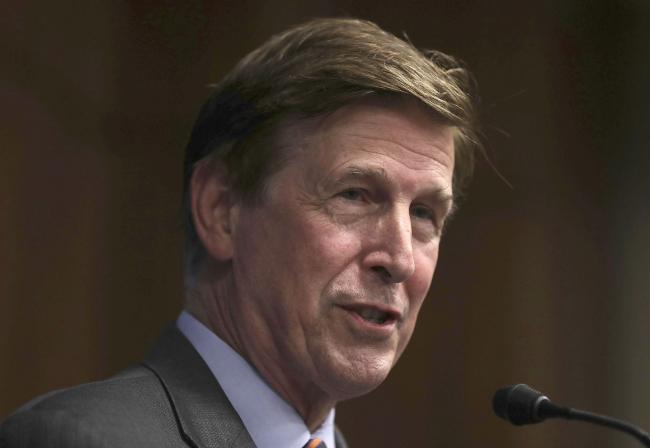(Bloomberg) -- A senior Democratic lawmaker predicted that his party’s legislators will be able to pass a budget resolution by the end of July, a key step in setting up legislation to enact President Joe Biden’s vision of trillions of dollars worth of social spending and tax hikes.
“The goal is very much to do that -- or, we’ve already been warned if we don’t get it by July 30, we could be here the first or second week of August to get it done,” Representative Don Beyer, who chairs the Joint Economic Committee, said in an interview Friday with Bloomberg TV when asked if a budget resolution can be completed by the August congressional recess.
Beyer highlighted that House Budget Chairman John Yarmuth has deferred to Senate Budget Committee Chairman Bernie Sanders on taking the first step on a budget resolution, a vehicle that allows for a reconciliation bill, which can bypass a Republican filibuster in the 50-50 Senate. Sanders has outlined a $6 trillion proposal.
“Six sounds a little high to me,” Beyer said about the proposed size. “Most of us, at least in the House, would like to pay for some or all of it,” he said of the spending, adding that $6 trillion is “a very big number for new revenue measures.”
Biden earlier Friday urged Congress to enact his American Families Plan proposal, which features trillions of dollars of support for lower and middle-income households. “Maybe the most important thing among them was extending the childcare tax credit,” for five years, he said. “Human infrastructure is as essential as our physical infrastructure.”
Infrastructure Plan
Beyer recognized that the plans would need to be passed on a partisan basis, amid Republican opposition. As for physical infrastructure, the Virginia Democrat noted that the House this week passed a surface transportation and water infrastructure plan of more than $700 billion, while a bipartisan group of senators has reached a $973 billion compromise framework.
Read More: House Passes First Infrastructure Test With Highway, Water Bill
Beyer, who built his family auto business in northern Virginia over four decades, highlighted that Biden has called for significant investments in rail transportation, while both the Senate and the House plans aim to shift the automobile industry toward electric vehicles.
While Beyer said it’s too soon to predict how those changes might affect profit margins, he noted that the automobile industry has already had to adapt to a changing market. Business has boomed for used-car dealers throughout the pandemic as people moved away from transit and carpools, he said, while new car production has stalled due to a global chip shortage.
©2021 Bloomberg L.P.

